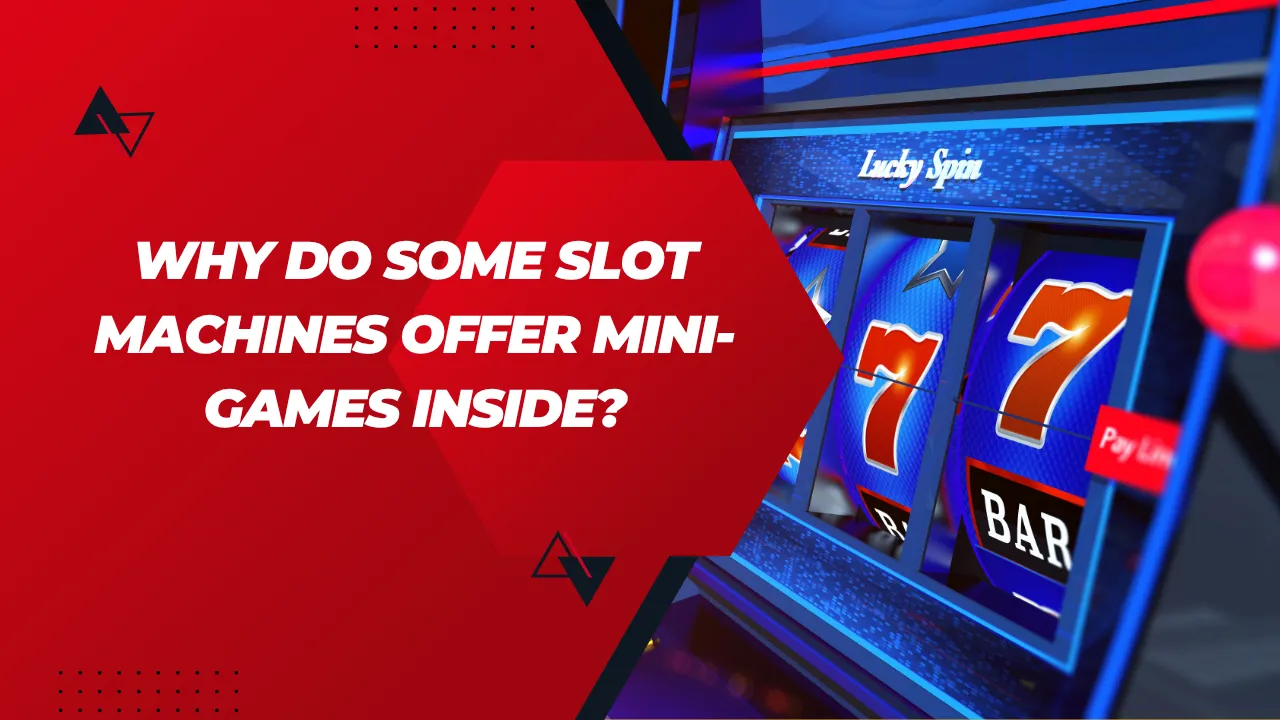If you’ve ever sat down at a modern slot machine, you may have noticed something intriguing: midway through the reels spinning, you’re suddenly taken to a completely different screen. Instead of the usual paylines and symbols, you’re now playing a bonus round — perhaps picking treasure chests, spinning a wheel, or shooting digital targets. These are the mini-games, a staple of today’s slot machine design, and they’ve become one of the most popular features among players.
So why do slot machines include them? The short answer is that mini-games make play more engaging, immersive, and rewarding. But the long answer reveals a fascinating story about psychology, technology, and how casinos adapt to changing player expectations. Let’s dive in.
The Psychology of Engagement
At their core, slot machines are designed to keep players entertained. Traditional slots with simple reels and symbols often relied purely on chance and repetition. While exciting at first, the predictability could cause players to lose interest quickly. Mini-games changed that dynamic entirely.
These bonus rounds break up the monotony and give players a sense of control, even though outcomes are still determined by random number generators. The very act of choosing between doors, spinning a digital wheel, or unlocking hidden prizes taps into a player’s natural desire for variety and interaction. This is especially appealing in today’s gaming landscape, where interactivity is expected rather than optional.
Players who regularly explore slot sites uk are already accustomed to interactive features, free spins, and gamified bonuses online. When land-based or digital slot machines incorporate mini-games, they echo that same sense of variety, making the experience feel modern and competitive with what’s already available on popular platforms.
Extending Playtime and Entertainment Value
One of the most important reasons casinos include mini-games in slot machines is that they extend playtime. Instead of a continuous cycle of spinning and waiting, players are pulled into a new challenge or reward sequence. This keeps them engaged longer, and engagement often translates into more overall play.
For players, this is not just about spending more but about getting more entertainment for their money. Slot games with mini-games feel richer and more dynamic, almost like getting several games in one. That makes them more memorable and more likely to draw repeat play compared to machines with nothing but standard reels.
Creating the Illusion of Control
Psychologists have long studied the role of “perceived control” in gambling. When players feel like their choices matter, even if outcomes are random, they tend to report higher satisfaction. Mini-games are a perfect example of this principle in action.
When a player selects one of three boxes or chooses where to “shoot” on the screen, it feels like their skill or intuition might influence the outcome. In reality, the prize is predetermined, but the illusion of choice keeps the experience engaging. Casinos and developers understand that this feeling of agency can make a huge difference in player enjoyment.
Technology and Innovation Driving Mini-Games
The evolution of slot machines from mechanical reels to digital screens opened the door for creative design. Developers were no longer limited to simple symbols and paylines; they could program complex animations, storylines, and bonus features.
Mini-games became a natural extension of this capability. With high-definition graphics and touchscreen technology, machines can now create immersive bonus rounds that feel more like mobile or console video games than traditional slots. Some even include story arcs, where mini-games progress in difficulty or rewards over time, creating a sense of progression that mirrors modern gaming trends.
Differentiation in a Competitive Market
Casinos and online gaming platforms face intense competition. With so many machines and websites available, developers need ways to make their games stand out. Mini-games provide that edge.
A slot machine that offers an entertaining pick-and-win round or a themed bonus stage tied to its storyline will naturally attract more attention on the casino floor. Similarly, online slot platforms highlight these features as selling points, using them to lure in players seeking novelty. For many players, the promise of engaging bonus rounds is enough to choose one machine over another.
Rewards and Bonus Multipliers
Mini-games are often tied directly to rewards, whether in the form of free spins, cash multipliers, or jackpot opportunities. For players, this adds a layer of anticipation. Hitting the bonus symbols isn’t just exciting because it triggers a different screen — it’s exciting because it could lead to much larger payouts.
Casinos, too, benefit from this structure. By offering rewards through engaging mini-games rather than straightforward payouts, they increase the entertainment value of winning while still controlling the mathematical return-to-player (RTP) percentages that keep their business profitable.
The Influence of Video Games
It’s impossible to ignore the influence of mainstream video games on slot machine design. Today’s players, especially younger generations, grew up with consoles, PCs, and mobile games filled with quests, side missions, and interactive challenges. Mini-games in slots borrow heavily from this culture.
By incorporating interactive bonus rounds, slot developers bridge the gap between traditional gambling and modern gaming. This crossover makes slot machines more appealing to an audience that might otherwise view them as outdated or too simplistic.
Encouraging Repeat Play and Loyalty
Finally, mini-games contribute to loyalty. Players often remember the machines that offered them the most fun, not just the biggest wins. When someone enjoys a themed bonus round or finds themselves entertained by an unusual interactive feature, they are far more likely to seek out that machine or game again.
Online casinos also use mini-games as part of their loyalty structures, offering bonus features unlocked after certain play thresholds. This keeps players engaged over longer periods and encourages them to return, reinforcing brand loyalty.
Conclusion
Mini-games inside slot machines are not just a fun distraction — they’re a carefully crafted tool designed to enhance engagement, create variety, and increase both player satisfaction and casino profitability. By giving players the illusion of control, extending playtime, and adding layers of excitement, these features transform a simple game of chance into an immersive entertainment experience.
As technology advances and player expectations evolve, mini-games will likely become even more sophisticated, blending storytelling, skill-based elements, and interactive design in ways that further blur the line between gambling and gaming. For players, that means more immersive and entertaining experiences; for casinos, it means greater loyalty and longer playtime.








